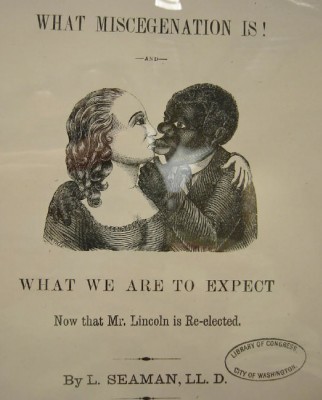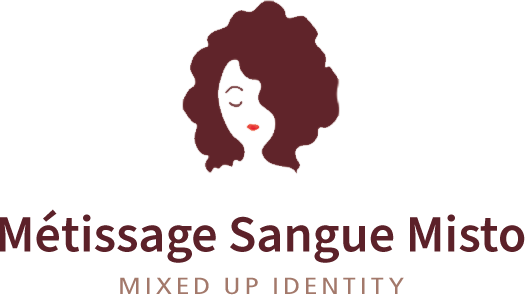
“Oggi, nel corso di un incontro, leggevo una poesia sul meticciato culturale e un signore,
tutto di nero vestito, mi ha interrotto dicendomi che quella è una brutta parola, da non
ripetere in raduni di gente perbene. Mi ha sgridata con voce squillante e mi ha fatto molta paura. Ecco perché non riesco a smettere di piangere, anche se il fatto risale già ad
alcune ore fa”.
Fidoh, sentendo queste parole dapprima si allarmò, poi allungò il collo, masticò la tenera
rucola come se fosse una pianta spinosa del deserto, si schiarì la voce e disse:
“Non ti preoccupare Fidah. Succede anche fra gli animali che non hanno mai conosciuto il nazionalismo o il fascismo o il nazismo. Ci sono molti individui, fra gli umani, che hanno paura del relativismo e la cultura meticcia è portatrice di relativismo. Credono che la cultura sia una cosa e un’essenza. Fanno confusione fra relativismo culturale e relativismo etico. Non voglio parlare difficile perché sono soltanto un dromedario, ma questo è un retaggio del nazionalismo e del colonialismo. In una parola, della separazione. Vedi anche i sindacati, che dovrebbero promuovere lo sviluppo sostenibile, dividono i loro iscritti in nazionali e immigrati, perché non riescono ancora ad accettare il meticciato, la creolizzazione…”.
“Scusami Fidoh – lo interruppe Fidah – ma io non capisco niente di ciò che stai dicendo”.
“Ehi piccola, mi dispiace ma questi concetti sono complessi. Però vedi io mi sono adattato
a mangiare questa rucola anziché il mio amato Schih. All’inizio soffrivo spesso di
dissenteria, ma ora mi sono abituato e non scambierei la rucola con niente al mondo. E’
una questione di adattamento. Le cose sconosciute ci fanno sempre paura. Questa è la
vita. Il meticciato si sta facendo con te e i tuoi compagni anche senza saperlo”.
“Infatti – replicò Fidah, ormai rasserenata e gli occhi perfettamente asciutti – i miei
compagni di scuola non mi hanno mai fatta sentire diversa o presa in giro perché faccio il ramadan e come merenda porto il rfiss anziché le merendine confezionate. Anzi mi
chiedono sempre un assaggio”.
“Sì, è quel che ti ho detto: la cultura non è un insieme di attributi essenziali, naturali.
Questo lo credono i fondamentalisti. Ma è un processo storico, con apporti diversi e
diversificati. Basta pensare che Sant’Agostino era un africano, che si vergognava del suo
accento non proprio perfetto quando parlava in latino e che è considerato uno dei padri
della Chiesa. E cosa dire di Gesù che era ebreo? Adesso vai a fare i tuoi compiti e non
pensare a quel signore, perché appartiene al passato”.
Kúmá 15, Giugno 2008
Tahar Lamri
I am a Tuareg who lives in Italy, so it’s natural to have at home such an animal as a pet: a dromedary named Fidoh (we put an academic “h” to please our neighbors). That camel with a hump alone.
One day my daughter came home from an initiative that should had to be cultural, with a lot of experts and authorities, crying.
I was not there and my daughter found only Fidoh that was cropping some rocket in the garden. Fidoh, as camels do, immediately became alarmed and asked my daughter the reason for her tears.
My daughter, called Fidah, put it in this way:
“Today, in a meeting, I read a poem about cultural miscegenation and a gentleman,
all dressed in black, interrupted me and told me that that’s a bad word and I should not
repeat it in meetings of respectable people. He yelled in a loud voice, and got me really afraid.
That’s why I cannot stop crying, even if the offense belongs to a few hours ago.”
Fidoh, hearing these words, at first got very alarmed, then he craned his neck, chewed the tender rocket as if it was a thorn in the desert, he cleared his throat and said:
“Do not worry Fidah. It also happens between animals that have never known
nationalism, fascism or Nazism. There are many individuals, including humans, who are afraid of relativism and the hybrid culture is the bearer of relativism. They believe that
culture is an object and an essence. They make confusion between cultural relativism and ethical relativism. I don’t want to talk to you in a difficult way because I am only a camel, but this is a
legacy of nationalism and colonialism. In a word: separation.
Think about unions that should promote sustainable development, they share their members in
nationals and immigrants, because they still cannot accept the mixing of races, the
“creolization “.
“I’m sorry Fidoh – interrupted Fidah – but I can’t understand anything about what you’re saying.”
“Hey girl, I’m sorry but these concepts are complex. But, you see, I adapted
myself eating this rocket instead of my beloved “Schih”. At the beginning I often suffered
of dysentery, but now I am used to it and I would not trade the rocket with anything else . It’s
a question of adaptation. We are always afraid of strange things. This is
life.
Hybridisation is being done with you and your companions without even realizing it.
“In fact – said Fidah, now calmed and eyes perfectly dried – my classmates and I never felt different or teased because I’m in Ramadan or because take “rfiss” as a snack instead of packaged snacks. On the contrary they always ask for a piece to taste. ”
“Yes, that’s what I said, culture is a set of essential attributes, natural.
This believe the fundamentalists. But it is a historical process, with different and diversified contributions. Just think that St. Augustine was an African, who was ashamed of his
flawed accent when he spoke in Latin and is considered one of the fathers
of the Church. And what about Jesus? He was a Jew. Now go and do your homework and do not
think about that, because it belongs to the past. ”
Kuma 15 June 2008
Tahar Lamri





